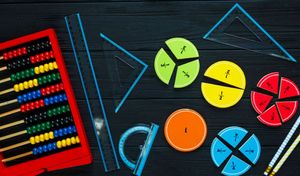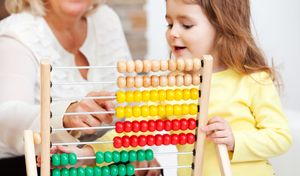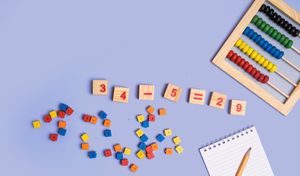Mathematics can be a challenging subject for many kids, but it doesn't have to be! In fact, it can be both fun and educational when you introduce math games into their learning routine. These games not only make math enjoyable but also help children develop essential math skills in a playful and engaging way. In this article, we'll explore a variety of math games for kids that are not only educational but also enjoyable, making learning math an adventure rather than a chore.
1. Counting with Everyday Objects:
One of the simplest yet effective ways to introduce math to young children is through counting everyday objects. Whether it's counting apples, toys, or household items, this activity helps kids understand the concept of numbers and basic arithmetic. You can turn it into a game by asking them to find specific numbers of objects or sort them by color or size.
2. Math Bingo:
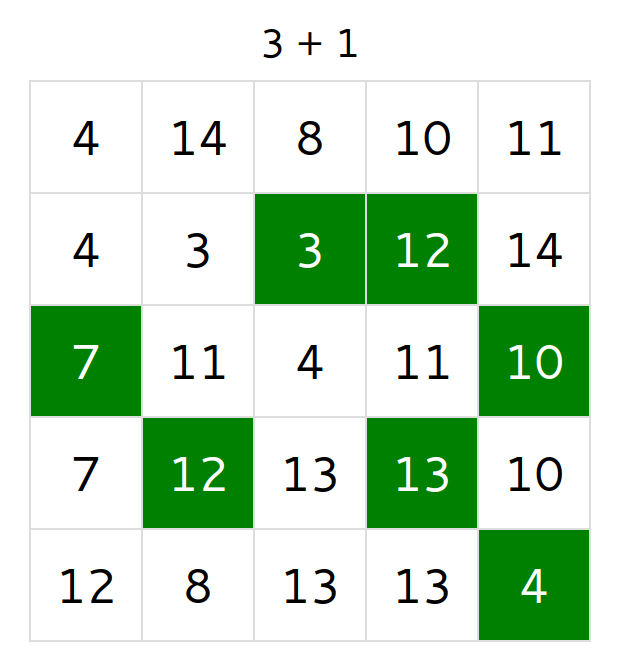
Bingo isn't just for grandmas anymore! Math Bingo is an exciting game that combines the thrill of bingo with math problems. Create bingo cards with math equations instead of numbers and call out the answers. Kids will have a blast competing to fill their cards while sharpening their addition, subtraction, multiplication, and division skills.
3. Math Puzzles and Riddles:
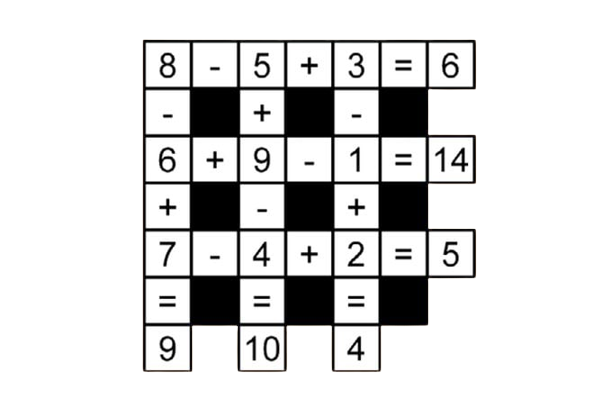
Puzzles and riddles are excellent tools to stimulate critical thinking and problem-solving skills. Introduce age-appropriate math puzzles and riddles to challenge your child's mind. These can range from simple addition puzzles to more complex logic problems. As they solve these puzzles, children enhance their mathematical reasoning without even realizing it.
4. Building with Blocks:
Building with blocks is a hands-on math game that aids in spatial awareness and geometry. Encourage your child to create shapes, patterns, and structures with different types of building blocks. You can even incorporate measurement concepts by discussing the size and length of the structures they create.
5. Math Board Games:
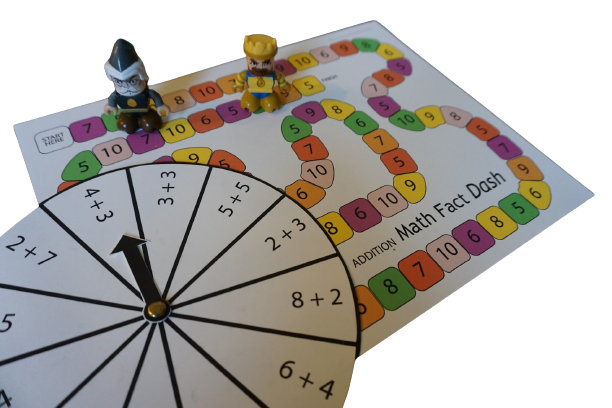
Board games like Monopoly, Scrabble, and The Game of Life offer more than just entertainment; they provide valuable math practice. These games involve counting money, strategizing, and making calculations. Choose age-appropriate board games to make learning math a family activity.
6. Math Apps and Online Games:
In the digital age, there's a plethora of math apps and online games designed specifically for children. These interactive tools make math engaging and interactive. Apps like "Prodigy" and websites like "Coolmath Games" offer a wide range of math challenges and activities tailored to various age groups.
7. Math in the Kitchen:

Cooking and baking are fantastic opportunities to sneak some math into your child's daily routine. Measuring ingredients, adjusting recipe servings, and setting timers all involve math. Plus, it's a hands-on way to demonstrate real-world applications of mathematical concepts.
8. Math Storybooks:
Storybooks with math themes can make learning fun and relatable. Look for books that incorporate math concepts into engaging narratives. These books not only entertain but also help kids understand abstract math ideas in a concrete context.
9. Math Scavenger Hunts:
Organize math-themed scavenger hunts around your home or in the backyard. Create clues that involve solving math problems to find hidden treasures or clues leading to the next location. This activity encourages teamwork, problem-solving, and math skills.
10. Math Art and Crafts:
Combine creativity with mathematics by engaging in math-themed art and crafts. Activities like making geometric shapes with craft sticks, creating symmetry with colored paper, or designing tessellations can foster a deeper understanding of mathematical concepts while honing fine motor skills.
Online Math Games
Online math games are a great way for kids to have fun while improving their math skills. Here are some examples of online math games that cater to various age groups and skill levels:
1. Prodigy:
- Age Group: Elementary school
- Description: Prodigy is an engaging online math platform that turns math practice into an adventure. It adapts to the child's skill level and curriculum, offering math questions in the form of battles, quests, and challenges.
- Age Group: Elementary to high school
- Description: Coolmath Games offers a wide variety of free math games, puzzles, and logic activities. From basic arithmetic to more advanced topics like geometry and algebra, there's something for everyone.
- Age Group: Elementary to middle school
- Description: Math Playground features a collection of interactive math games and puzzles that help reinforce math concepts. It covers topics like addition, subtraction, multiplication, division, and fractions.
- Age Group: Preschool to early elementary
- Description: ABCmouse offers a comprehensive early learning curriculum, including math games and activities. It's designed to help young children develop basic math skills through interactive games and lessons.
5. Hooda Math:
- Age Group: Elementary to high school
- Description: Hooda Math provides a range of free math games and logic puzzles. It covers topics like arithmetic, algebra, geometry, and more. Games are organized by grade level and skill.
6. Sumdog:
- Age Group: Elementary to middle school
- Description: Sumdog offers personalized math challenges and competitions for students. It adapts to the child's ability level and provides engaging games that cover various math skills.
7. IXL Math:
- Age Group: Elementary to high school
- Description: IXL Math is an adaptive learning platform that offers interactive math exercises aligned with educational standards. It covers a wide range of topics and provides detailed feedback to help kids improve.
- Age Group: Preschool to early elementary
- Description: PBS Kids offers a collection of math games featuring popular characters like Curious George and Sesame Street. These games are designed to make math fun and accessible for young learners.
- Age Group: Elementary school
- Description: Math Blaster is an online space-themed math adventure game that challenges kids with math problems as they explore different planets and complete missions.
These online math games provide a wide range of options for kids of different ages and skill levels to practice math while having fun. Parents and educators can choose games that align with their child's specific needs and interests.
Conclusion:
Incorporating math games into your child's routine can transform math from a daunting subject into an exciting adventure. These games not only build essential math skills but also foster a love for learning. Whether it's counting everyday objects, playing math bingo, solving puzzles, or engaging in math-themed activities, there are countless ways to make math enjoyable for kids. So, why wait? Dive into the world of math games and watch your child's confidence and enthusiasm for mathematics grow. Together, let's turn math into a journey of discovery and fun!

Here are some frequently asked questions (FAQs) related to math games for kids:
Why should I introduce math games to my child?
Math games offer a fun and engaging way for children to develop essential math skills. They make learning enjoyable and help build confidence in math, setting a strong foundation for future academic success.
At what age can I start introducing math games to my child?
You can start as early as preschool. Simple counting games and basic math concepts can be introduced to toddlers. As your child grows, you can gradually introduce more complex games tailored to their age and skill level.
Do math games really improve math skills?
Yes, they do! Math games help children practice and reinforce mathematical concepts in a playful manner. They enhance problem-solving, critical thinking, and logical reasoning skills, all of which are crucial for math proficiency.
Can I use math games to help my child with specific math problems or challenges?
Absolutely! Math games can be customized to address specific math difficulties your child may be facing. For instance, if your child struggles with multiplication, you can focus on multiplication-themed games to provide extra practice.
Are there educational math apps and websites suitable for kids?
Yes, there are numerous math apps and websites designed specifically for children of all ages. These digital resources offer interactive and engaging math activities that align with educational standards.



